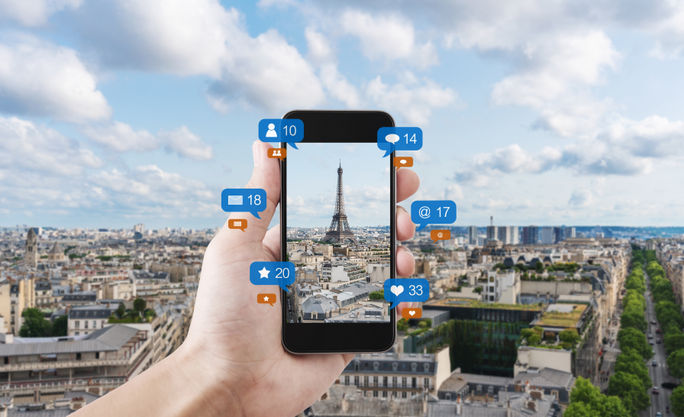
Black Friday has
basically become its own travel season. Instead of a single day of dramatic
discounts, suppliers now tease offers for weeks, layer incentives and build
anticipation across social media and inboxes alike. And travelers feel that
energy.
Even the most
practical, research-driven client can suddenly find themselves hovering over a
cruise fare or a resort promo, feeling that little spark of urgency that wasn’t
there before. It’s not that the logic has changed; it’s that the psychology has
kicked in.
To uncover the
emotional and psychological cues that inform consumers’ Black Friday, Cyber
Monday, and Travel Tuesday booking decisions, we examined how some universal
purchasing triggers identified in Psychology Today apply specifically to the travel and
tourism industry.
Scarcity and
FOMO Are Driving Most Decisions
A big part of
Black Friday’s power comes down to scarcity. When a booking page says, “Only
three rooms left at this rate,” our brains interpret that not just as
information, but as a threat. Psychologists call this loss aversion—we feel the
possibility of losing something much more strongly than we feel the joy of
gaining it.
So, when clients have been thinking about a
vacation for weeks or months, and suddenly it looks like the window to secure
it could close, that’s when emotions take over. This doesn’t mean advisors need
to lean into pressure. In fact, the most effective thing you can do is offer
calm clarity.
For instance, you
might tell your client, “This is a strong value for the experience you’ve been
wanting. If this feels like the right trip, this is a good time to secure it.”
You’re not pushing urgency; you’re helping them trust their own instincts.

Social proof makes consumers want to hop on the travel bandwagon. (Photo Credit: Adobe Stock/SasinParaksa)
Social Proof
Makes the Deals Feel More Real
Black Friday also
taps into something called social proof. When clients start seeing friends post
about their next adventure, hearing coworkers discuss the best cruise deals,
and watching TikTok travel “steals” fly across their feeds, it can create the
sense that everyone else is taking action. That alone can make someone feel
like they should be, too.
The advisor’s role
here is simply to reassure—not pressure. Saying something like, “I’ve had
several clients book this promotion this week, and it’s genuinely one of the
better values we’ve seen,” helps clients feel that their interest is reasonable
and grounded. You’re not telling them to keep up with others—just helping them
understand that the demand they’re sensing is real.
Reference
Pricing Makes Discounts Look Bigger Than They Are
It’s also
important to acknowledge that Black Friday pricing itself can be misleading. In
both retail and travel, companies often use “reference pricing”—where the
so-called original price is inflated to make the sale price look more dramatic.
So, the bigger
question isn’t always “How much do I save?” but “What does this deal allow me
to experience that I couldn’t access otherwise?” Maybe the sale makes a room
with a private plunge pool affordable, or allows a client to add a pre-cruise
night in a nicer hotel.
When advisors help
clients see how the offer affects the experience—not just the base price—the
decision becomes clearer and more grounded. For instance, you might tell a
client, “This offer includes daily breakfast, transfers and a free night —
which brings the real value much higher than the base price suggests.”

The endowment effect makes consumers feel as if a trip they’ve imagined is already theirs. (Photo Credit: Adobe Stock/Nina L/peopleimages.com)
The Endowment
Effect Kicks in Quickly
There’s another
strong psychological force at play: the endowment effect. Once a client starts
imagining themselves on a balcony sipping coffee at sunrise or watching their
kids play in a resort pool, that version of the trip starts to feel personal,
almost like it already belongs to them. Letting go of it can feel like losing
something.
Advisors can
support a client’s process by offering low-pressure holds or quick
confirmations that buy time to think—without risking the space or rate
disappearing. An offer of “I can hold this for 24 hours so you have room to
breathe and decide” goes a long way toward helping a client choose from a place
of certainty instead of panic.
Emotion-Driven
Buying Becomes the Norm
Black Friday is
designed to feel exciting. The countdown clocks, the bright sale banners, even
the holiday music—it’s all engineered to make people feel like they’re about to
win something. And booking travel is already an emotional decision by nature.
The advisor’s role
is to help keep one foot on the ground. Asking gentle questions like, “Does
this itinerary fit how you like to travel?” or “Will these dates still work
once the holiday buzz settles?” gives clients space to ensure their excitement
aligns with reality. The aim is not to dampen enthusiasm, but to help anchor it
in more down-to-earth considerations.

A travel advisor consulting with some satisfied clients. (Photo Credit: Dragana Gordic/Adobe Stock)
Leveraging the Travel Advisor
Advantage
The advisors who
convert well during Black Friday tend to do a few simple things: they start
conversations early, match deals to the client rather than forcing sales on
them, frame value in terms of experience rather than monetary savings, make the
booking process easy and follow up with care instead of pressure.
Because at the end of the
day, Black Friday isn’t really about racing the clock. It’s about helping
people say yes to the trips they’ve already been dreaming about—and making sure
that “yes” feels intentional, exciting and appropriate.
For the latest travel news, updates and deals, subscribe to the daily TravelPulse newsletter.

